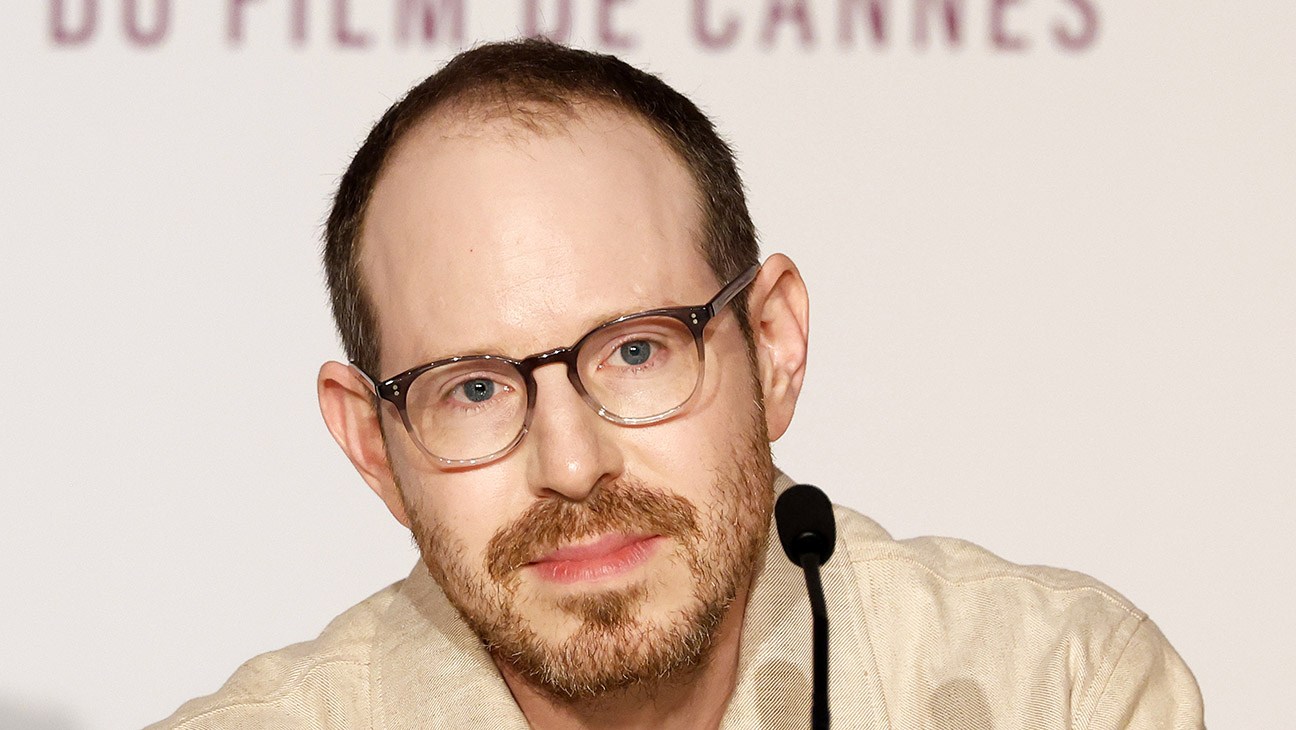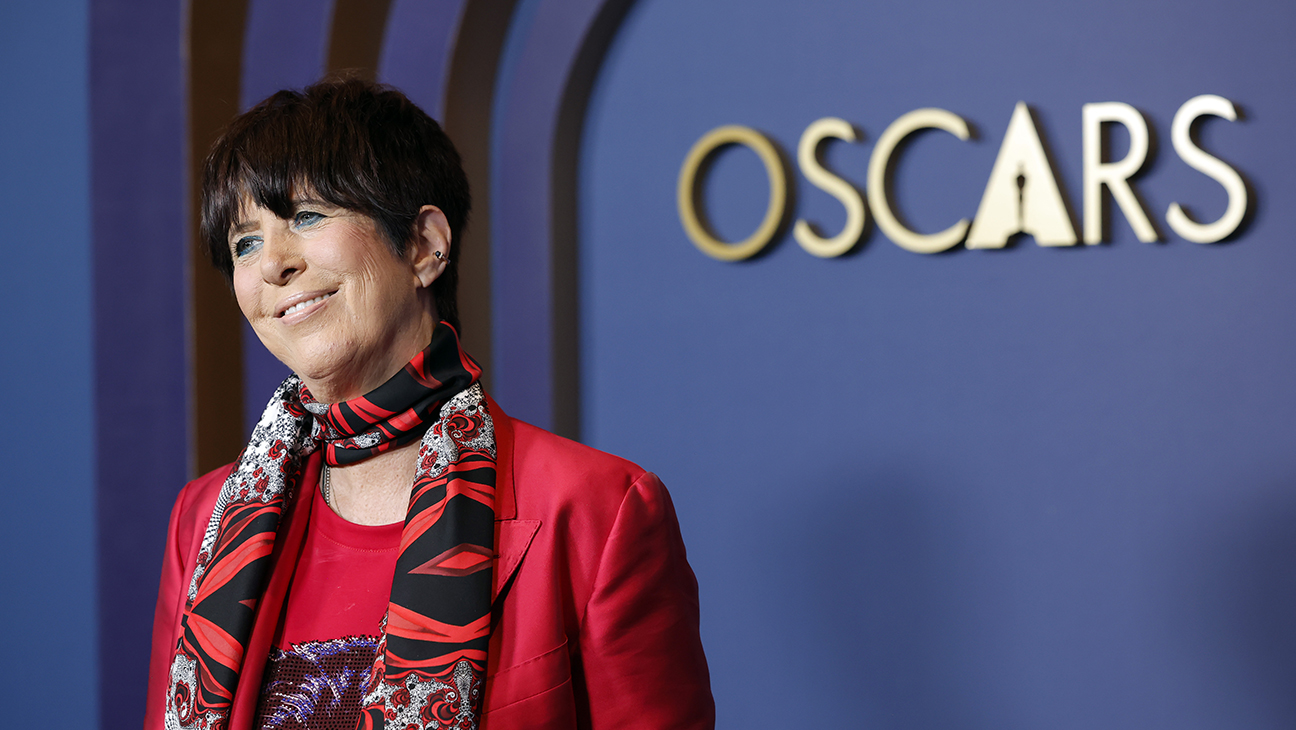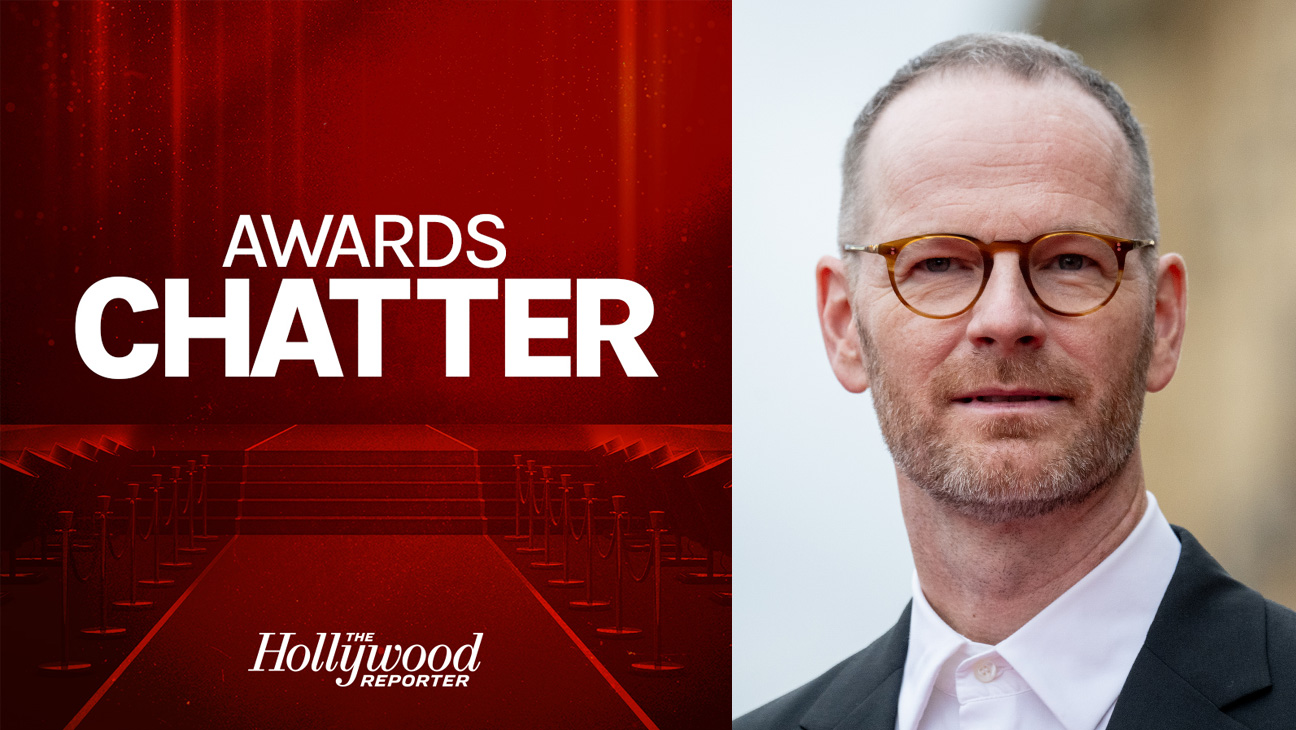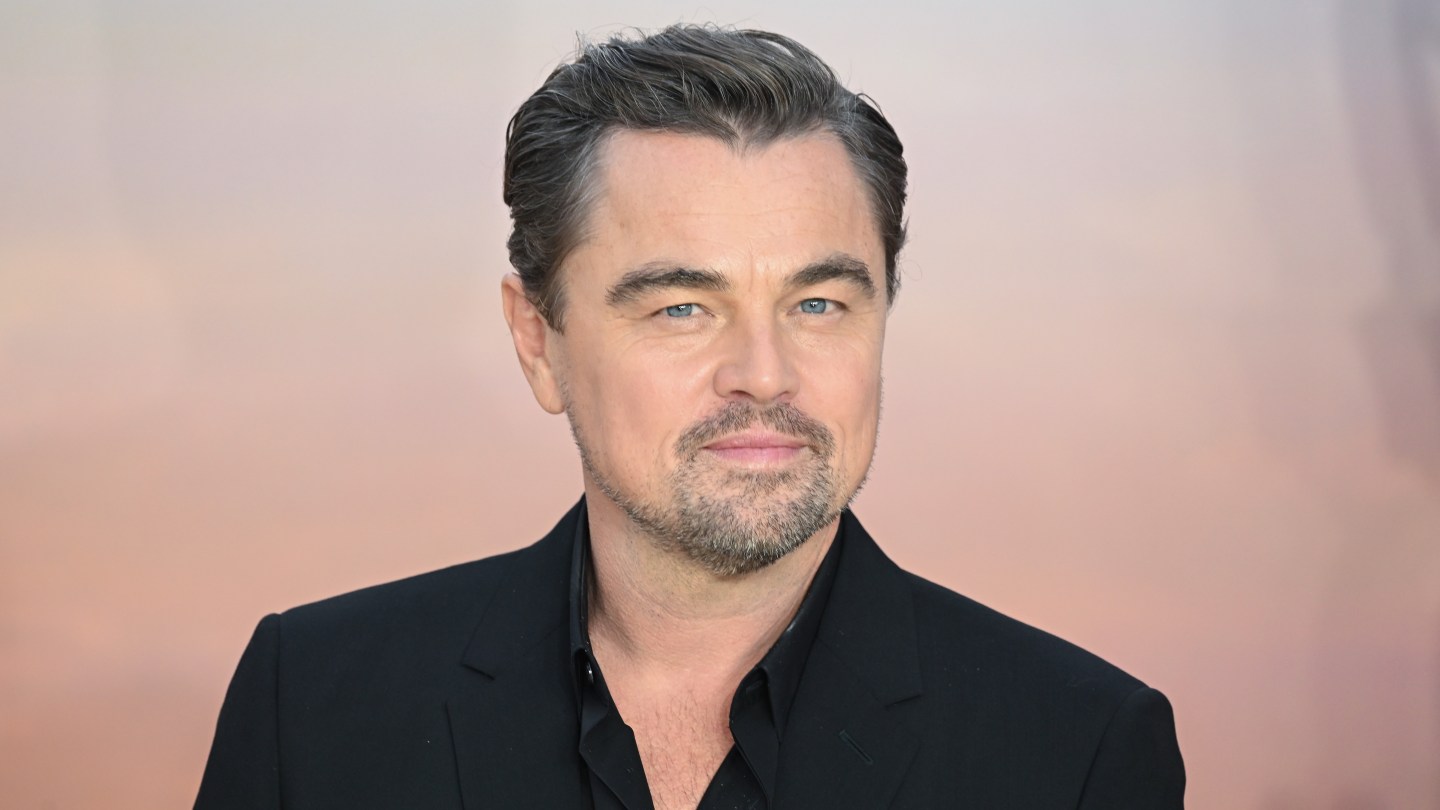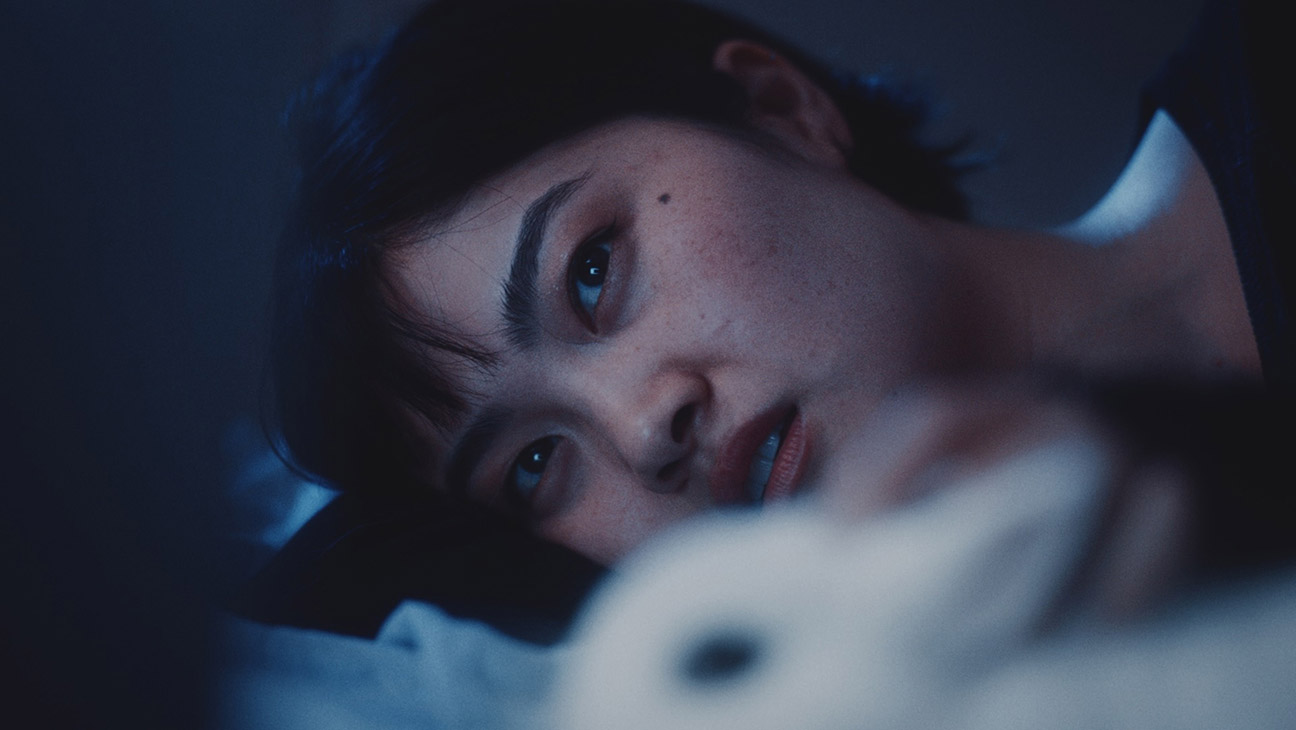[This story contains spoilers for Eddington.]
Ari Aster is a good sport.
The Eddington writer-director didn’t have to entertain The Hollywood Reporter‘s questions about an embryonic draft of his COVID-19 Western, but he did so anyway, further illustrating how the writing and rewriting process doesn’t truly end until picture is locked. The film always introduced its fictional small town setting of Eddington, New Mexico through the perspective of a troubled local vagrant named Lodge (Clifton Collins Jr.), but according to an earlier script, the sequence originally contained a real-life tech billionaire with a notable history on the big screen.
As Lodge babbles and walks barefoot back to town, Aster establishes a sign for a proposed data center, which is one of numerous issues that has divided Eddington’s sub-3,000 population and the nearby reservation known as Santa Lupe Pueblo. Similar data centers are being built all over the U.S. right now in order to support Big Tech’s overwhelming investment in AI infrastructure. However, there have been widespread objections over these facilities’ potential resource depletion, particularly water.
Meta’s own data centers have been in the news due to this very concern, and so it makes sense why Aster once scripted a quick scene involving Meta chairman, Mark Zuckerberg. Lodge once watched the tech CEO emerge from a stretch limousine with a map in hand so he could assess Eddington’s offerings. But the appearance was scrapped during ongoing development, never advancing to the point of having to assemble a casting list.
“That fell by the wayside a long time before we started making it,” Aster tells THR during a recent FYC conversation. “That was an early idea, and it was only one moment.”
The battle for Eddington’s soul is primarily waged by Joaquin Phoenix’s Sheriff Joe Cross and Pedro Pascal’s Mayor Ted Garcia. The two men have opposing views on just about everything: politics, the aforementioned data complex and COVID-19 safety protocols as of May 2020. Furthermore, they have longstanding personal grievances, mainly involving Joe’s wife, Louise (Emma Stone).
After a dust-up with Ted over the local grocery store’s adherence to the state’s mask mandate, Joe impulsively announces his rival candidacy for mayor of Eddington, and tensions eventually boil over to the point of deadly violence. Eddington contains a number of images, story points and themes that struck a chord at the time of its theatrical release in July 2025, but a number of them have proven to be quite prophetic of more recent events within America’s fraught political landscape.
“I’m pretty heartbroken about where we are. I’m very scared. I feel immense dread all the time. This movie came out of that sense of dread, and I certainly see how the film is prescient,” Aster says. “There are things that have happened since [the theatrical release] that the film anticipates, but the film is also the product of me just trying to look unblinkingly at where we are. If I’m not using the world right now for my work, then it’s just going to be using me. This is a very, very dark moment, and so I hope that the film feels reflective of where we are.”
Below, Aster also discusses other adjustments he made to his ever-evolving script, including the substantial dialogue removal during Joe and Ted’s duel over the volume of Katy Perry’s “Firework.”
***
The final shot has lingered in my mind since July. My first thought in the theater was, “This is who won, and this is who was always going to win.” Is that reading on your wavelength?
Yep! (Aster smiles.)
I read an early version of the script that does not end with that shot. It ended with invalid Joe (Joaquin Phoenix) and Dawn’s (Deirdre O’Connell) unique bedroom arrangement, minus the third party. When did it occur to you that the data center shot should be the exclamation point on the piece?
Well, it was in the shooting script before we started production, so you probably read a version that was maybe half a year before we began shooting. But it felt like it came to be a very important part of the film’s spine before we began. And now, it’s the heart of the film. It’s the point of the film.
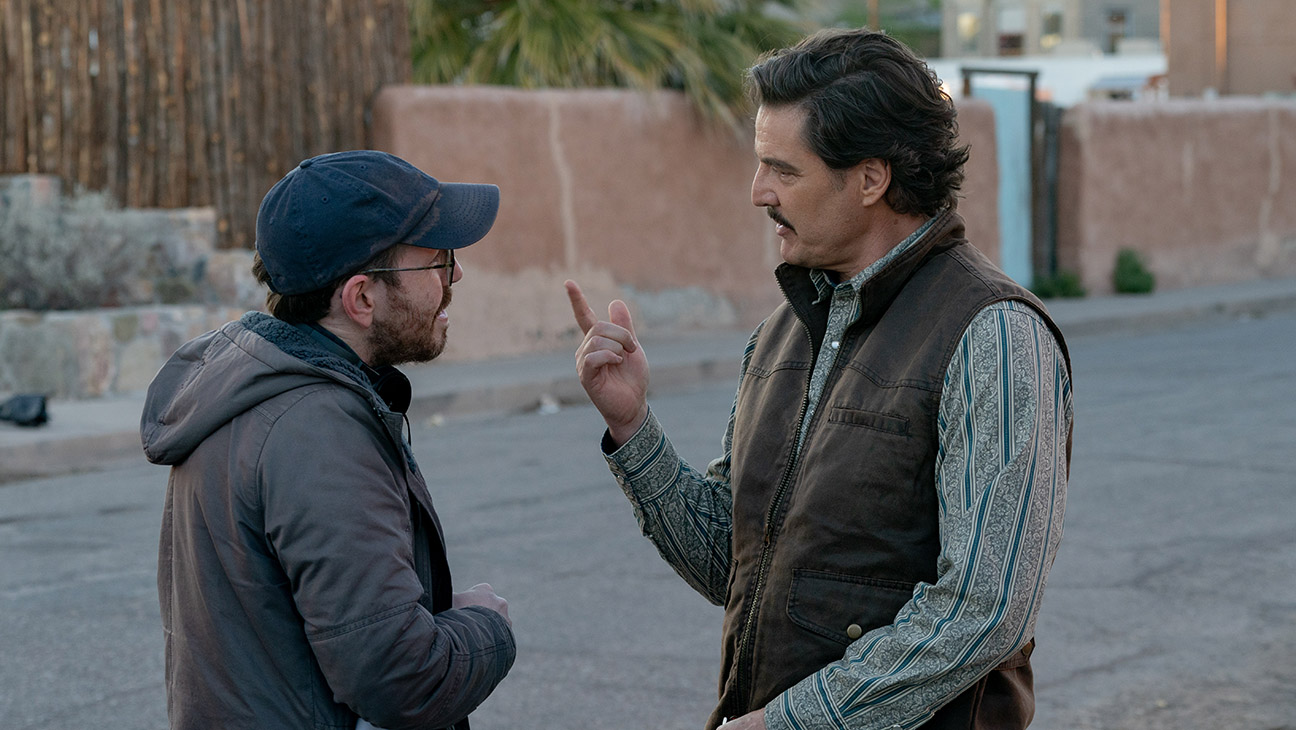
There have been recent stories about the water-related impact of a Meta data center in Georgia, and that’s one of several ways in which Eddington has become even more relevant since its theatrical release. On one hand, it might be reaffirming to know you had your finger on the pulse, but on the other hand, I can’t imagine you want to be right about all these things. Do you actually feel conflicted about the film’s prescience?
I’m pretty heartbroken about where we are. I’m very scared. I feel immense dread all the time. This movie came out of that sense of dread, and I certainly see how the film is prescient. There are things that have happened since [the theatrical release] that the film anticipates, but the film is also the product of me just trying to look unblinkingly at where we are. As a storyteller, I take as many pieces of this landscape, this culture, and build a house out of it, create a piece of architecture. If I’m not using the world right now for my work, then it’s just going to be using me. This is a very, very dark moment, and so I hope that the film feels reflective of where we are.
I don’t have any answers, and the movie doesn’t pretend to have any answers, but it’s very easy to lose the forest for the trees. So I hope that the movie is able to pull back far enough to give a broader picture of where we are. Of course, I have a very limited picture of where we are because I’m also just completely mired in my own identity and, honestly, in my own algorithm. I have access to the information that I have access to, and I do what I can to get as broad a picture of what everybody is seeing, especially while I was making this film. I really tried to do that.
Eddington is a dark film, and I’ve heard people describe it as mean-spirited. But again, it’s trying to reflect the mood of the country, and things have gotten really mean. Things are very cruel. This culture is incredibly cruel, and things have gotten really obscene. So, in some ways I had to tamp all that stuff down in the film because it could have easily been much more alienating and much more unpleasant. So it was interesting to have to actually sand off the edges in some cases just so it could be digestible.
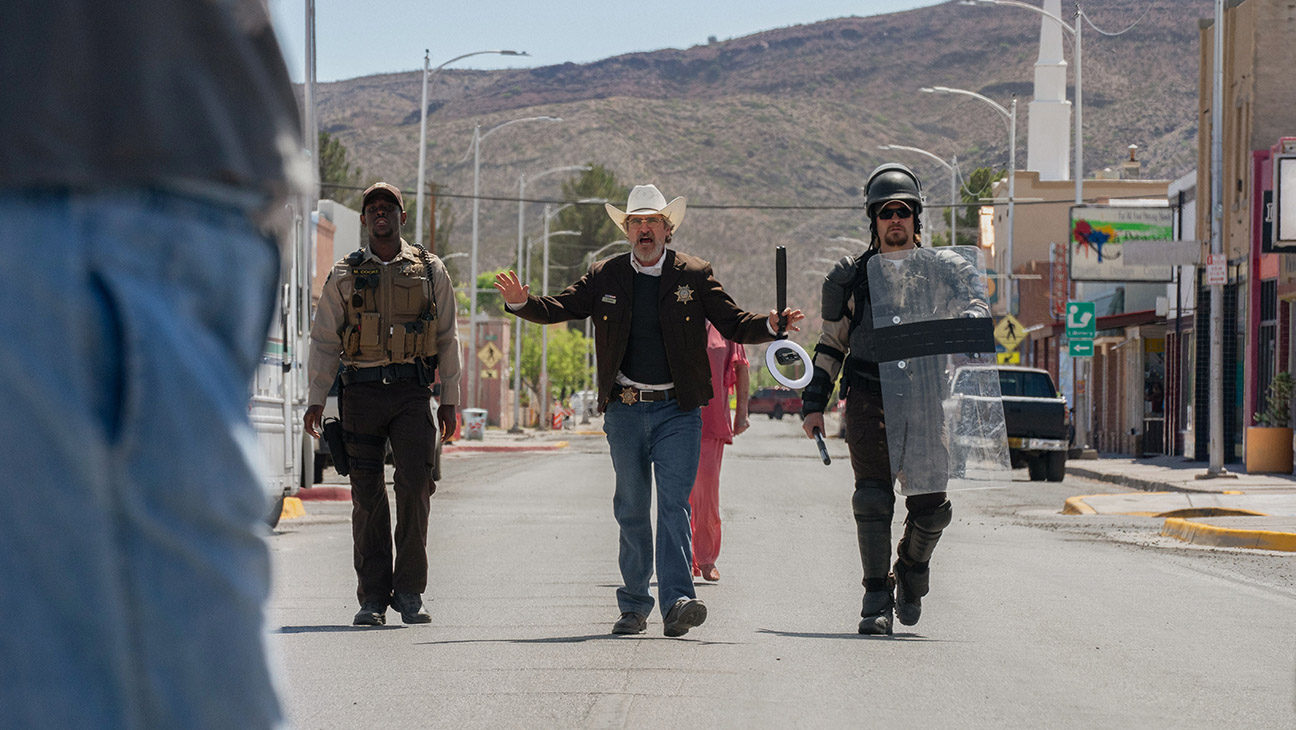
A Mark Zuckerberg character was once scripted to appear during Lodge’s (Clifton Collins Jr.) opening sequence. (Per Lodge’s POV, he sees Zuckerberg get out of a stretch limo at night and survey the town while holding a map.) Did that quickly fall by the wayside?
Oh, so you read a much older version. Yeah, that fell by the wayside a long time before we started making it.
So you never got as far as thinking about casting?
No, that was an early idea, and it was only one moment, as you know.
[The following question contains major spoilers for Eddington.]
The former opening also had the first of two major jurisdictional standoffs between Sheriff Joe Cross and Santa Lupe Pueblo police. Did you decide that it would be more dramatic to save that type of conflict for the investigation into the Garcia murders?
Well, we actually did shoot one version of that first standoff, the one with the charred body near the wheelchair and the land grant. That was something that we did shoot, and it was just too long and complicated. It was something that was meant to never quite come back into the story. So that was something that we reshot in the middle of editing. There were a few pickups we needed, and we decided, “Let’s do something simpler at the beginning here so that we can just get going.” And we didn’t need to repeat the jurisdictional issue. It worked right in the middle of the film, well enough that it didn’t need the doubling. [Writer’s Note: Joe’s opening scene instead became a more streamlined squabble with reservation police over his resistance to wearing a mask on their soil.]
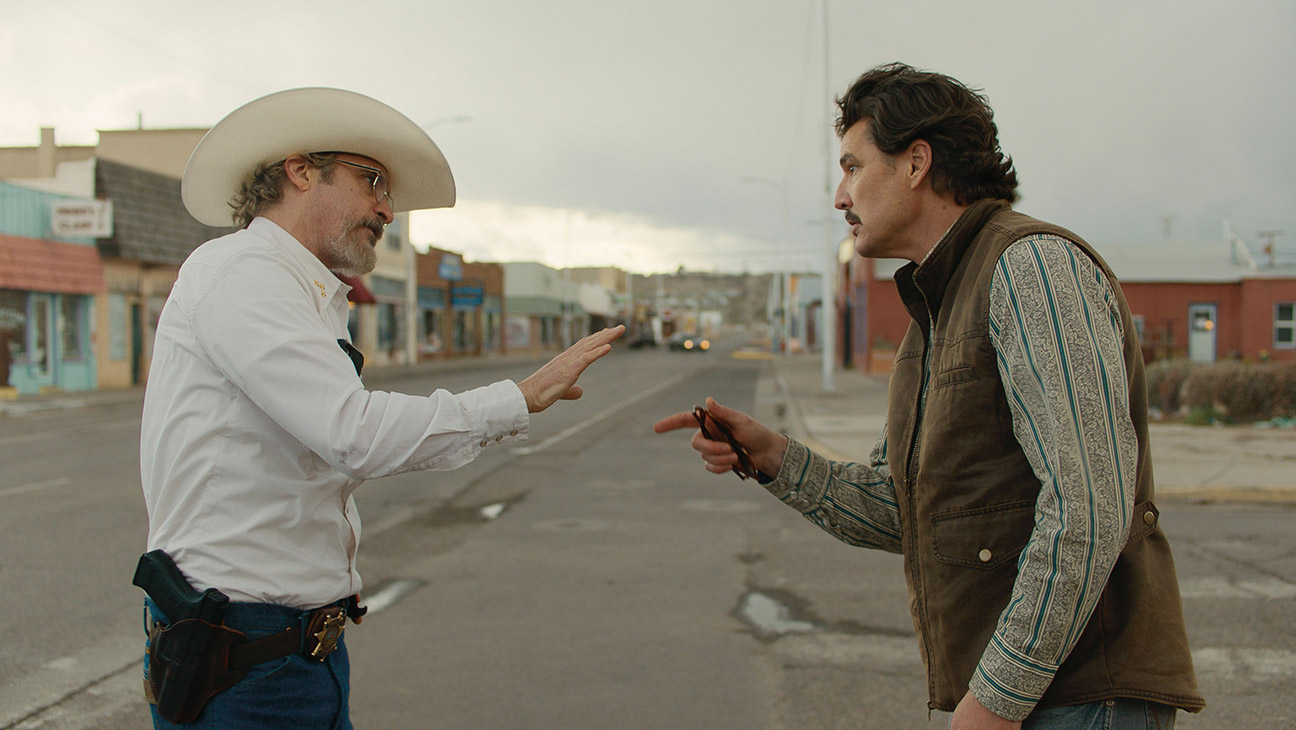
I thought it was interesting how you removed most of the scripted dialogue from two big scenes: the party fight between Joaquin and Pedro’s characters, and Louise’s (Stone) departure. Did you make that determination? Or did the actors insist that they could sell most of it with just their expressions and body language?
No, that was changed [by me]. Yeah, you read a really early version that shouldn’t be available to read.
Sorry, I just didn’t want to give you the same interview you’ve already been given.
No, it’s fine. Things always leak. I changed that [party scene] as I was working on the script and polishing it and seeing what we needed. A lot of the dialogue that’s in that scene we pulled earlier, so it’s in [Joe and Ted’s] interaction on the street. But that was all just work that I had been doing to make the film leaner. It then became clear to me that, at that point in the film, enough words have been exchanged, and the scene would be much stronger with just the specific action of what’s happening.
There were a number of stories this year about Joaquin and how he tends to go through a period of self-doubt in the lead-up to a project. This is not unheard of among artists. He usually works through it, but sometimes he doesn’t. Assuming he’s had phases on your two movies where he gets in his head, what’s the key when that happens? Do you just talk things through and find a happy medium?
Joaquin completely throws himself into whatever he’s doing, and he takes the decision to actually commit to something very seriously. I think he suffers over it, and I certainly understand that. I have nerves about everything I’m doing and wondering whether it’s the right thing. With Joaquin, I think he faces that with every scene. For every scene, he comes in and asks, “How do I find this? How do I find something interesting, true and urgent that is worth expressing?” I think he lives in horror of the idea of acting and just giving a performance. I think he even recoils at that word performance, and that’s why I really love working with him.
He will challenge everything you put in front of him, and that very often yields something surprising and, sometimes, electrifying. What you want from any actor is for the scene or the movie to come to life, or to get away from you and take on its own energy. And there is a magic to what Joaquin does. He’s trying to summon that. He’s trying to summon something that is beyond him. He’s also a very technical actor, surprisingly technical. He knows what he’s doing, and he’s very conscious of craft.
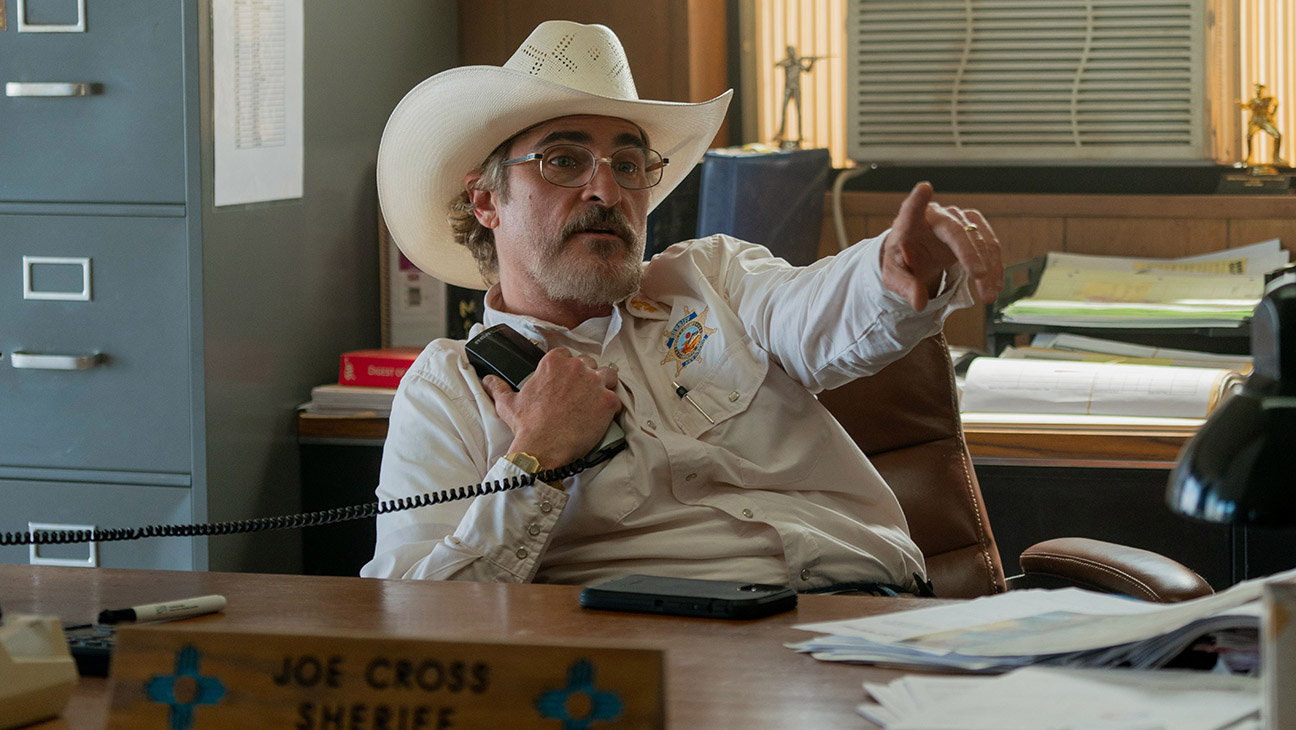
I’m always fascinated by the fraternity between filmmakers. I routinely hear stories of Guillermo del Toro spending a day in a filmmaker’s editing room and whatnot. Zach Cregger also just told me about a major contribution that your buddy Bill Hader made during the rewriting of Weapons. You’ve thanked people such as Chris Abbott on your last couple films, and the same goes for one or both of the Coens, too. Can you talk about the support or contributions you receive from your community?
I live in New York, and I know a lot of New York filmmakers. We’ll be called into a feedback screening to watch something before it’s done and give notes. Typically, when you see somebody in the thank you section, you’re thanking them for giving feedback, or showing up and just watching the film before it’s done. Sometimes, you’re getting a lot of feedback from somebody, meaning, if you’re close with them, you’ll talk to them for a while. Yeah, Joel [Coen] was very helpful, Ethan [Coen] was helpful. I’m friends with Bo Burnham, and he’s always helpful. He’s very smart. They’re all incredibly smart people. Bill [Hader] is also somebody that I’ll often bounce stuff off of, and he’ll bounce stuff off of me. So it’s great to have friends like that.
You’ve mentioned previously that you have a follow-up of sorts in the world of Eddington. Based on the ending, I’m guessing that it would involve the Michael character. What’s your temperature on that potential project at the moment?
Well, I just want to keep making films that are engaging with the world and with the moment and with where we are. We’re living in such a combustible time, and things are changing so quickly and so drastically. So it feels important to be engaged with that and to not retreat from that.
***
Eddington is currently available on digital ahead of Oct. 21’s Exclusive 4K Release via A24.

